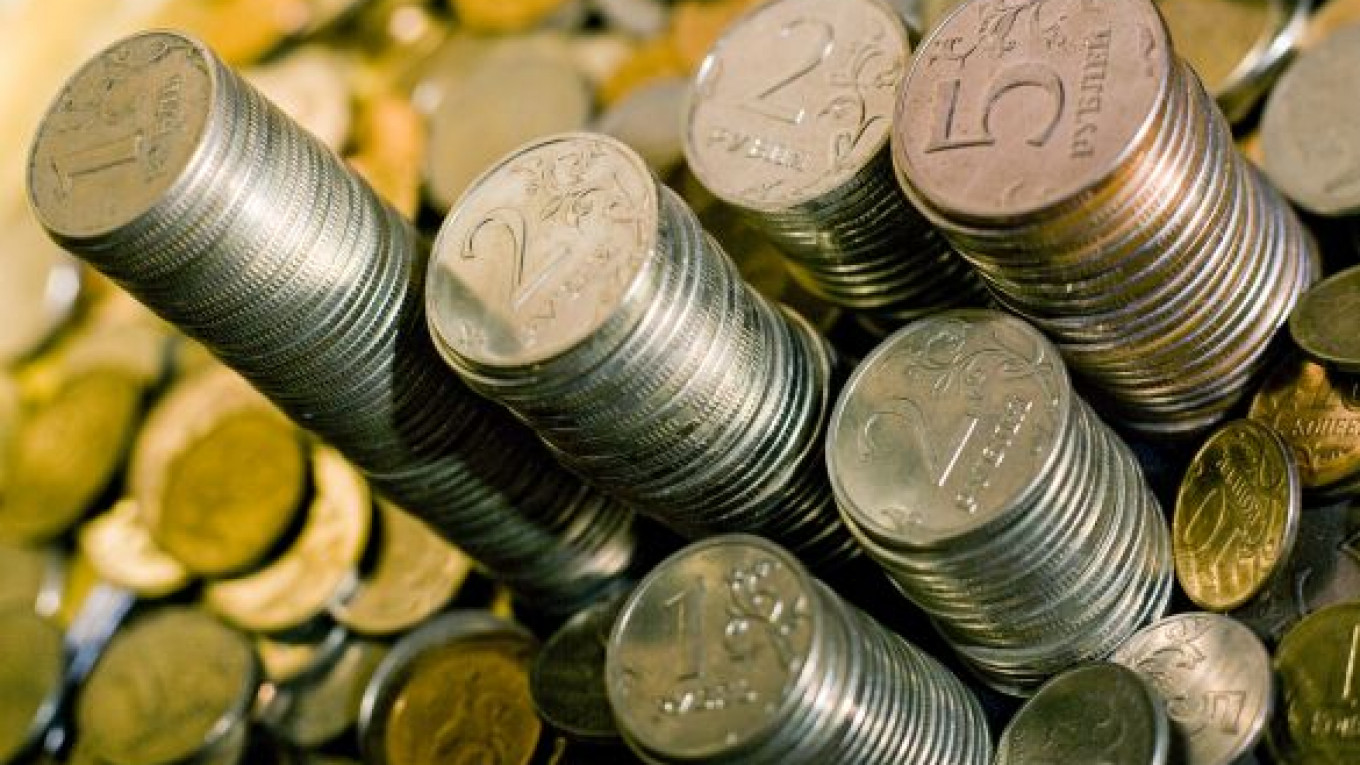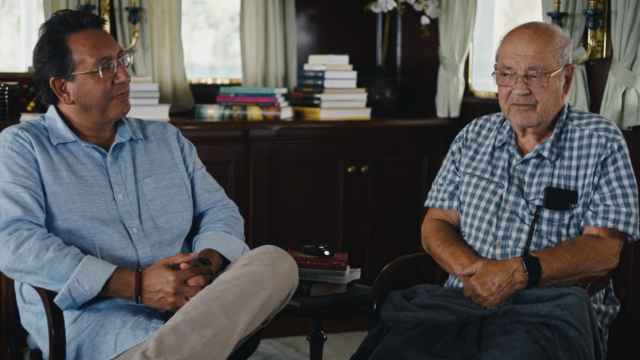You may have noticed your pockets getting heavier recently. The introduction of the 10 ruble coin — golden and shiny — has strained pockets even further in a country that has never feared providing huge amounts of change, even if seemingly purely to help shops that never seem to have change.
The 10 ruble coin joins the 5, 2 and 1 ruble denominations, plus, of course, whatever the collective noun is for kopeks — “diddly squat” is one suggestion — that comes in flavors of 50, 10, 5 and 1.
Most households have a jar, a piggy bank or some other kind of receptacle where the spare change is emptied. The choices of what to do with change are not as few as you might think. One option is to grab it all and hand it to the nearest beggar that you meet in your nearest underpass, or perhaps to the young woman who says she has been trying to get the 17 rubles that she needs to buy a train ticket home for a couple of years already near the Kurskaya metro station.
A more radical route was taken by one too-rich-for-his-own-good expat who simply threw his change away as soon as he got it.
You could go “tourist” and rain the money down on the zero-kilometer spot near the entrance to Red Square or dump it in the fountains at Manezh Square.
Or you could just turn the coins into note form. Handing them over to banks is the obvious answer, but not as simple as it seems. It may be money, but that doesn’t mean all banks will exchange it for free or with ease.
Some banks will count small amounts by hand if you smile nicely, but the best way to get a few months’ collection of coins into notes is to first sort them into denominations and then bring them into a bank with a counting machine. This means Sberbank. The state bank has two machines in Moscow, according to its press service: one at its branch at 19 Ulitsa Vavilova and the other at 6 Bolshaya Andronyevskaya Ulitsa.
With these machines, you can put the coins in yourself. First though, you have to show your passport and fill out a form before the machine is turned on.
At the Vavilova branch, there is only one person who has the power to turn on the machine, so if you get there on her day off, you will likely have to take the coins back home. She was out on our visit.
Other Sberbank branches have machines — there is one at 2 Dolgorukovskaya Ulitsa — but these are used strictly by tellers. The system is the same though: You bring in your sorted change, only the teller puts it into a machine before returning back to you the odd foreign coin and bits of twisted coins and dirt that have mingled into the batch.
None of this is free, so it may only be worth your while doing it for a few kilograms’ worth of change.
“We charge a fee of 3 percent of the total amount, but no less than 50 rubles per transaction,” said Natalya Katkova, a Sberbank manager.
You can avoid that fee if you put the money into an account at Sberbank or pay communal fees with the coins.
One transaction with Sberbank got caught in a Catch-22 because the customer is supposed to write down on the form how much the change is worth. It took the teller a while to be convinced that it was probably better to write down the number after putting the coins into the counting machine, rather than before.
Of other banks contacted — Barclays, HSBC, VTB and Alfa — none had counting machines, and all charged fees and required an account to be opened. Barclays had the most reasonable rates with a fee of 1.5 percent and no fees for opening an account.
The easiest way is to hand over the change to someone who will do some good with it. The charity Life Line, which provides help for sick children, regularly holds cash drives where people can give in their spare change. The charity has an agreement with Alfa Bank, which helps count the money. The last drive in June raised 850,000 rubles ($27,500). Check the charity’s web site — www.life-line.ru — for the next time when change can be handed in. It is due to take place next month.
A Message from The Moscow Times:
Dear readers,
We are facing unprecedented challenges. Russia's Prosecutor General's Office has designated The Moscow Times as an "undesirable" organization, criminalizing our work and putting our staff at risk of prosecution. This follows our earlier unjust labeling as a "foreign agent."
These actions are direct attempts to silence independent journalism in Russia. The authorities claim our work "discredits the decisions of the Russian leadership." We see things differently: we strive to provide accurate, unbiased reporting on Russia.
We, the journalists of The Moscow Times, refuse to be silenced. But to continue our work, we need your help.
Your support, no matter how small, makes a world of difference. If you can, please support us monthly starting from just $2. It's quick to set up, and every contribution makes a significant impact.
By supporting The Moscow Times, you're defending open, independent journalism in the face of repression. Thank you for standing with us.
Remind me later.






